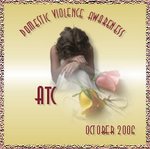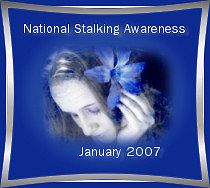Sex Offenders on campus
"Sex Offenders on Campus 3:54 AM
"With the spread of sex offender registries across America, those listed have a hard time avoiding recognition in their communities. But there's at least one place where many still seem to believe they can blend in: college campuses. This bit of news comes from a recent study in Federal Probation: A Journal of Correctional Philosophy and Practice. OK, so it's not living room reading, but the findings, by the University of Louisville's Richard Tewksbury and Matthew B. Lees, bear a closer look.
"Sex offenders have long been considered among the most despised and feared criminals in western culture," write Tewksbury and Lees. "The mere mention of the phrase 'sex offender' typically conjures up images of sadistic rapists and child predators."
To deal with these most offensive of crimes, federal laws in the mid-1990s mandated that the FBI and states keep registries of sex offenders. By 2004, there were 40 states with publicly available lists. Statutes expanding those measures to college campuses were enacted in 2002 with amendments to the Campus Sex Crimes Prevention Act. The laws cover not only students but also staff and contract employees.
To gauge the impact of the campus registries, Tewksbury and Lees checked websites for all 579 four-year, public colleges and universities in the United States. Of these, they found 39–or 7 percent–had campus registries, listing 113 registered sex offenders, or RSOs. They then sent out questionnaires to the individuals and received back 26 completed surveys. That's a pretty small sample, but the results are intriguing, nonetheless.
They're not exactly the folks you want in your dorm room. Two-thirds of their offenses were committed largely against children, while more than a quarter had preyed upon relatives. Nineteen percent of their victims were male. And most were known to the offender; only 8 percent were strangers.
Here's where it gets really creepy: Outside of campus, some 31 percent of the group believed that "all" or "almost all" persons in their communities knew they were registered sex offenders–due apparently to the wide availability of state sex crime lists. But on campus, only 4 percent believed that nearly everyone knew their status. Indeed, on campus 1 in 6 thought nobody knew their background at all, even though they were listed on university registries.
Despite this perceived anonymity at school, the RSOs reported difficulties on campus as bad as or worse than in the community at large. The most common complaints: Two thirds said they'd lost or failed to get a job, while others complained of housing difficulties, harassment, and loss of friends. These "collateral consequences," as the authors call them, may have the opposite effect intended, further isolating and worsening the offenders. The study's conclusion: More research "is greatly needed"–particularly on the growth of specialized registries like those on campus.
Tough subject. It's hard to have any sympathy for these people, but what do we do with them all?
http://www.securityoncampus.org/aboutsoc/didntknow.html
Jeanne Clery, murdered in her dorm room, April 5, 1986
The Bad Guys Blog"
http://www.usnews.com/usnews/news/badguys/
David E. Kaplan is chief investigative correspondent at U.S. News & World Report. His work includes cover stories on intelligence agencies, police spying, Saudi financing of jihad groups, and the growing use of organized crime by terrorists. Among Kaplan's books are Yakuza and The Cult at the End of the World, on the doomsday sect that nerve gassed Tokyo's subway. You can reach Kaplan at badguys@usnews.com.
When you reprint another blogger's work, the basic etiquette is to give credit and a link to the original post. Failing to do so is not only inappropriate; It is plagiarism.
The Bad Guys Blog
www.usnews.com/badguyshttp://www.usnews.com/usnews/news/badguys/070327/sex_offenders_on_campus_1.htm
It was sent to me from a friend without his link. It has since been fixed












